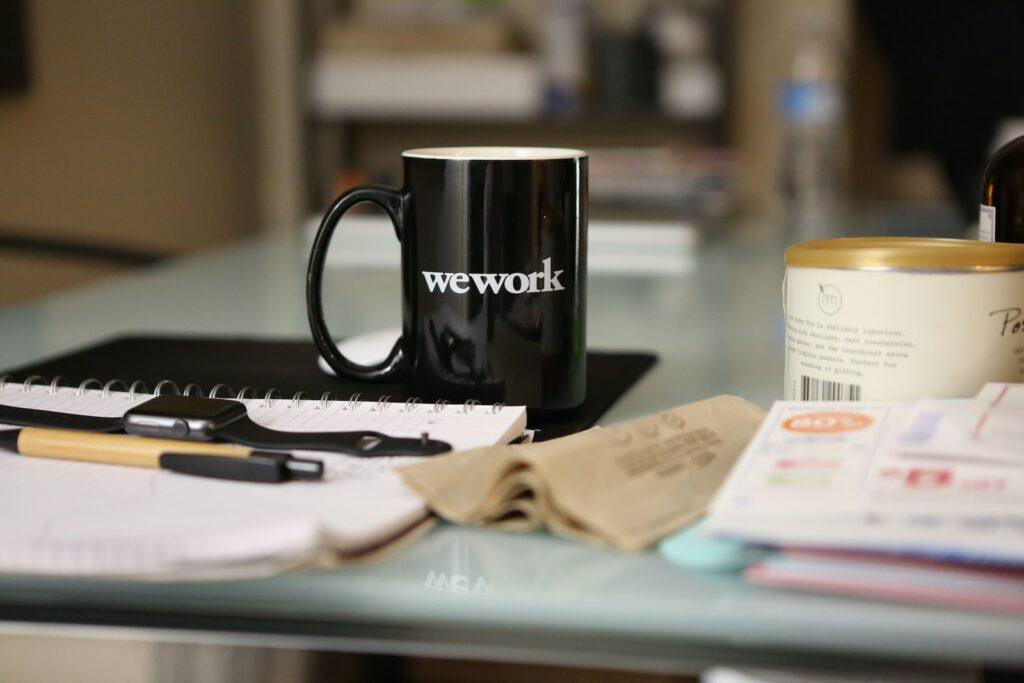Preparing for a job interview is crucial for putting your foot forward on your professional path and increasing your chances of success. To do this, it’s important to do your research beforehand, learn about the company you want to work for, and practice common interview questions. One of the most important ones is the question about where you see yourself in 5 years.
Explore some of the most effective strategies for preparing your responses, provided with examples tailored to various job settings. If you invest some time and effort into practicing and refining your answers, you can approach the interview with confidence and showcase your alignment with the company’s goals as well as your own career aspirations.
How To Prepare For A Job Interview
Preparing for a job interview helps you present yourself in the best possible way and increases your chances of getting hired. We have outlined some necessary steps to help you effectively prepare for a job interview:
- Firstly, you need to research the company. Gain a good understanding of the company’s products, services, culture, values, recent news, as well as any other relevant information. This will help you tailor your answers to align with the company’s goals. It will also demonstrate your interest in the organization.
- You also need to understand the job requirements. Review the job description in detail and identify the key skills, qualifications, and responsibilities required for the role. Consider how your experience and abilities match the job requirements, and think of specific examples that showcase your relevant skills.
- You might not be aware of this, but YOU need to know your resume inside out. Familiarize yourself with the contents of your resume to be prepared to discuss your previous experiences, accomplishments, and the skills you acquired. Highlight specific achievements that demonstrate your value as well as suitability for the position.
- What’s more, practicing common interview questions is necessary. Prepare responses to common interview questions such as those related to your strengths and weaknesses. They might ask you about your previous work experiences, your ability to handle challenges, as well as your goals. Practice answering these questions out loud, either by yourself or with a friend or family member.
- Prepare questions to ask the interviewer. Prepare thoughtful questions to ask the interviewer that demonstrate your interest in the company and the role. This shows that you have done your research and are genuinely engaged in the opportunity.
- Dress appropriately. Choose professional attire that is suitable for the company culture and the position you are applying for. It’s better to be slightly overdressed than underdressed. You absolutely don’t have to wear a suit and tie or a pencil skirt. Decide what to wear once you research the company and get an idea of the potential working environment.
- Plan logistics: Make sure you know the location of the interview to plan your route in advance. Check the interview schedule, note the names and positions of the interviewers. Furthermore, always ensure you have all the necessary documents or materials with you.
- Practice good body language: Pay attention to your body language. Maintain good eye contact and sit upright to demonstrate confidence and enthusiasm. Practice positive non-verbal cues, such as a firm handshake and a friendly smile.
- Conduct a mock interview: Ask a friend or family member to conduct a mock interview with you. This can help you practice your responses, improve your delivery, and receive feedback on areas that need improvement.
- Follow-up after the interview: Prepare a thank-you note or email to express your gratitude for the opportunity to interview. This gesture shows your professionalism and appreciation for the interviewer’s time.
How To Practice For Job Interview Questions


Practicing common interview questions is an essential part of interview preparation. To do this, you need to be aware of what the questions are and some tips on how to prepare for answering them. First, let’s look at the ways you can prepare yourself for answering any question that may come in your way:
- Research common interview questions. Start by researching common interview questions that are relevant to your industry and the position you are applying for. There are many online resources and books available that provide lists of common interview questions. Make a list of questions that you want to focus on.
- Understand the intent behind the questions. Take the time to understand why interviewers ask certain questions. For example, questions about your strengths and weaknesses are asked to gauge self-awareness and your ability to assess and improve yourself. By understanding the intent behind the questions, you can provide more thoughtful and relevant responses.
- Prepare and write down your responses. Take each question on your list and write down your responses. Start with a brief introduction that provides context, followed by the main points or examples you want to highlight. Be sure to showcase your relevant skills, experiences, and achievements in your responses.
- Practice your responses out loud. Once you have written down your responses, practice saying them out loud. This will help you become more comfortable with the language and structure of your answers. Focus on speaking clearly, confidently, and naturally.
- Time yourself. During practice, time yourself to ensure that your responses are concise and within an appropriate timeframe. Aim to keep your answers focused and around 1-2 minutes in length, avoiding rambling or going off-topic.
- Seek feedback and make adjustments. If possible, practice with a friend, family member, or mentor who can provide feedback on your answers. They can offer insights on your delivery, clarity, and overall effectiveness. Take their feedback into account and make adjustments to improve your responses.
- Practice different scenarios and adaptability. In addition to common interview questions, consider practicing responses to different scenarios or hypothetical situations that may be specific to the job or industry. This will help you demonstrate your problem-solving skills and adaptability.
- Record yourself or use a mirror. Consider recording yourself practicing your responses or use a mirror to observe your body language, facial expressions, and overall demeanor. This can help you identify areas for improvement and make adjustments to your presentation style.
- Repeat and review: Practice your responses repeatedly to build confidence and ensure you can recall the information easily. Review your notes and make sure you can answer each question comfortably.
- Last but not least, stay flexible and authentic. While practicing your responses is important, it’s equally important to stay flexible and authentic during the actual interview. Memorizing responses word-for-word can make your answers sound rehearsed. Focus on conveying your key points and adapt your responses to address the specific question being asked.
Remember, the goal of practicing interview questions is to become familiar with the content, structure your thoughts effectively, and improve your delivery. The more you practice, the more comfortable and confident you will become in expressing yourself during the actual interview.
Taking the time to prepare for a job interview, you can increase your confidence, demonstrate your interest and commitment. Therefore making a positive impression on the interviewer. Just be yourself, stay positive, and showcase your qualifications and enthusiasm for the position.
Common Job Interview Questions


Employers ask a variety of questions during job interviews to assess the suitability of candidates for a particular position. The questions can vary depending on the industry, company, and job role. However, here are some common types of questions employers often ask:
Background and experience:
– Can you tell us about yourself?
– What relevant experience do you have for this role?
– How did you handle a challenging situation in your previous job?
Skills and qualifications:
– What skills do you bring to this role?
– How proficient are you in [specific software or tool]?
– Can you provide an example of a project where you demonstrated [specific skill]?
Job-specific scenarios:
– How would you handle [specific situation or task]?
– What strategies would you use to [achieve a specific goal]?
– Can you explain your approach to [a relevant problem]?
Teamwork and collaboration:
– How do you work in a team?
– Can you provide an example of a time when you resolved a conflict within a team?
– How do you handle working with people from diverse backgrounds?
Problem-solving and decision-making:
– Can you describe a difficult problem you encountered and how you solved it?
– How do you prioritize tasks and make decisions under pressure?
– What steps do you take to ensure accuracy in your work?
Motivation and career goals:
– Why are you interested in this position/industry/company?
– Where do you see yourself in the next 5 years?
– How do you stay updated and improve your skills in your field?
Behavioral and situational questions:
– Can you provide an example of a time when you demonstrated leadership skills?
– How do you handle feedback and criticism?
– Describe a situation where you had to meet a tight deadline.
Company and industry knowledge:
– What do you know about our company?
– What industry trends or challenges do you think are relevant to our business?
– How do you think our company can stay competitive in the market?
“Where do you see yourself in 5 years?”


When answering the question, “Where do you see yourself in 5 years?”, during a job interview, it’s important to strike a balance between expressing ambition and aligning your goals with the company’s objectives. The question is usually asked at the end of the interview, and it somewhat makes or breaks your chances of getting hired.
- Show enthusiasm and ambition: Begin your response by expressing your enthusiasm for the position and your eagerness to contribute to the company’s success. This demonstrates your commitment and motivation.
- Align your goals with the company’s vision: Emphasize your interest in growing within the company and aligning your career goals with its long-term objectives. Mention specific aspects of the company’s mission, values, or future initiatives that resonate with you.
- Demonstrate continuous learning and development: Discuss your desire to continually learn, acquire new skills, and take on increasing responsibilities. This shows your dedication to personal and professional growth.
- Be specific but flexible: Provide a clear and concise idea of where you see yourself in 5 years, but also acknowledge that plans can evolve. Highlight the skills, experiences, or positions you aspire to attain within the company while acknowledging that you are open to opportunities that align with your goals and the company’s needs.
- Relate to the job you are applying for: Connect your career goals to the specific job you are interviewing for. Highlight how the position will contribute to your growth and enable you to develop relevant skills and expertise.
Example response:
“In the next 5 years, my primary goal is to grow both professionally and personally while making significant contributions to the success of the company. I’m excited about the opportunity to join this team, and I see myself taking on increasing responsibilities and leadership roles within the organization. I’m committed to continuous learning and development, and I’m particularly interested in gaining expertise in [specific areas relevant to the job] to contribute to the company’s growth in that field. However, I understand that plans can change, and I’m open to exploring new opportunities and adapting to the evolving needs of the company.”
Remember, your response should be genuine and aligned with your career aspirations. It’s important to demonstrate your ambition and enthusiasm while also showing that you are adaptable and willing to contribute to the company’s objectives.
Answering the Question For A Different Job Settings


Here are five examples of responses to the question, “Where do you see yourself in 5 years?” for different job settings:
For A Position In A Big Company:
“In the next five years, I see myself progressing through various roles within the organization, leveraging the extensive opportunities for growth and advancement that a big company like this offers. I aspire to assume positions of increasing responsibility, such as a department manager or a team leader, where I can contribute to the company’s strategic goals and mentor other talented individuals.”
For A Position At A Small Business:
“In five years, I envision myself playing a pivotal role in the growth and success of this small business. As the company expands, I aim to take on additional responsibilities and contribute my expertise to help drive its expansion into new markets. I’m excited about the opportunity to work closely with a close-knit team, make a significant impact, and take on leadership roles as we achieve our goals.”
For a Retail Job:
“Over the next five years, I see myself advancing within the retail industry by developing strong customer relationships and honing my sales skills. I’m enthusiastic about becoming a store manager or taking on a supervisory position where I can lead a team, implement effective sales strategies. I can also ensure exceptional customer experiences. I want to contribute to the growth and profitability of the store while continuously improving my knowledge of the industry.”
For a Remote Job:
“In the next five years, I see myself excelling in a remote work environment, leveraging my skills to deliver exceptional results from anywhere in the world. I’m committed to staying up-to-date with the latest technologies and tools to maximize productivity and collaboration. As I continue to refine my remote work practices, I aspire to take on more complex projects, collaborate with diverse teams, and contribute to the company’s success while enjoying a flexible work-life balance.”
If You Want To Start Working At A Foreign Company:
“Over the next five years, I envision myself thriving in an international setting, contributing to the success of a foreign company while immersing myself in new cultures and expanding my global perspective. I’m excited about embracing cross-cultural collaboration, adapting to different business practices, as well as leveraging my skills to drive growth and innovation. Furthermore, I aim to build strong relationships with colleagues from diverse backgrounds and contribute to the company’s international expansion efforts.”
Remember to tailor your response to the specific job, company, as well as the industry you are interviewing for. Although the examples provided can serve as inspiration, it’s important to adapt your answer to your own career goals and aspirations within the given job context.
Family Planning


It’s important to note that questions about personal matters such as marriage or family plans are generally considered inappropriate and illegal during a job interview. These questions can be discriminatory and unrelated to a candidate’s qualifications or ability to perform the job.
If an interviewer asks about your marital status, plans for having children, or any similar questions, you have the right to politely redirect the conversation back to your qualifications and professional goals. You can respond by focusing on your skills, experiences, and dedication to your career:
“I appreciate your interest, but I believe my qualifications and dedication to my career are more relevant to this discussion. I am therefore fully committed to my professional growth and achieving success in this role. I’m confident that my skills and experience make me a strong candidate for this position.”
Keep in mind that it’s essential to maintain a professional and respectful tone while asserting your right to keep the conversation focused on your qualifications and abilities. The interviewer should be evaluating you based on your skills, experience, and fit for the job, rather than personal matters.
Moving Abroad


If an interviewer asks about your plans for moving abroad, respond in a professional and thoughtful manner. A few approaches you can consider have been outlined below:
Addressing personal interests:
“While I am open to new opportunities and experiences, my primary focus at the moment is to contribute to the success of this company and grow within my role. I am committed to delivering value and achieving the goals set by the organization. However, I am always open to exploring possibilities and considering opportunities that align with both my career aspirations and personal interests.”
Emphasizing commitment:
“I am dedicated to making a meaningful impact in my current role and driving the success of the team and the organization. My commitment lies in contributing my skills and expertise to help achieve the company’s objectives. Currently, I do not have any immediate plans to move abroad. However, I am adaptable and willing to consider new opportunities that arise in the future, depending on the needs of the company and my professional growth.”
Exploring possibilities:
“While my immediate focus is on excelling in this role, I am open to exploring international experiences if the right opportunity arises. In case of some opportunities within the company to work on projects abroad or collaborate with international teams, I would be excited to contribute my skills in such a context. However, my commitment to the company’s success remains a priority, and any decision would be thoroughly evaluated and aligned with both personal and professional goals.”
Once again, maintain a positive and professional tone in your response while highlighting your commitment to the role and organization. Always strike a balance between expressing openness to new possibilities but at the same emphasizing your dedication to your current position.
Conclusion
Preparing for a job interview requires thoughtful consideration and practice. Researching common interview questions, understanding the intent behind them, as well as by developing well-crafted responses, you can effectively convey your skills, ambitions, and alignment with the company’s objectives. Remember to remain authentic, adaptable, and open to new possibilities during the interview. With thorough preparation and practice, you can present yourself as a qualified and enthusiastic candidate ready to make a valuable contribution to the organization. Good luck with your interview!





















Leave a Reply
View Comments